
Bitcoin vs Ethereum: An in-depth Comparison between BTC and ETH

Bitcoin (BTC) and Ethereum (ETH) are undeniably the top cryptocurrencies that have played a significant role in the development of the crypto industry.
BTC, being the pioneer of cryptocurrencies, is often referred to as the digital equivalent of gold. On the other hand, ETH can be viewed as a decentralized computing platform that can revolutionize various industries.
In this article, we will take an in-depth look at the differences between Bitcoin and Ethereum. So, let's start with a brief overview of Bitcoin and Ethereum.
What is Bitcoin?
Bitcoin(BTC) was the first cryptocurrency, created in 2009 by an anonymous individual or group of individuals using the pseudonym Satoshi Nakamoto. Bitcoin is a decentralized digital currency that operates on a peer-to-peer network, allowing for secure, anonymous transactions without the need for intermediaries.
One of the key features of Bitcoin is its limited supply. There will only ever be 21 million bitcoins in circulation, which helps to ensure that the value of each bitcoin is protected and can increase over time as demand grows. The process of generating new bitcoins is called mining, and it involves solving complex mathematical equations using specialized computer hardware.
What is Ethereum?
Ethereum, on the other hand, is a decentralized computing platform that was introduced in 2015 by Vitalik Buterin. Ethereum's blockchain technology allows developers to create and deploy smart contracts, which are self-executing contracts with the terms of the agreement between buyer and seller being directly written into lines of code.
Ethereum also has its own cryptocurrency, called Ether (ETH), which is used to pay for transactions and computational services on the Ethereum network. Unlike Bitcoin, there is no limit to the number of Ethers that can be created.
Bitcoin vs Ethereum - Key Differences
Although Bitcoin and Ethereum share the fundamental principles of distributed ledger technology and encryption, they differ greatly in terms of technical specifications. Let's delve into the technical and operational differences that set Bitcoin and Ethereum apart.
1. Transaction Speed and Cost
Bitcoin's transaction speed is slower than Ethereum's due to its block size limit of 1MB, which restricts the number of transactions that can be processed per block. As a result, Bitcoin transactions can take up to 10 minutes to be confirmed, while Ethereum transactions are typically confirmed in under a minute.
The cost of Bitcoin transactions can also be higher than Ethereum's due to its popularity and limited block size, which can lead to network congestion and higher fees. Ethereum's transaction fees are generally lower due to its larger block size and more efficient use of the network.
2. Mining - Proof of Work vs. Proof of Stake
Both Bitcoin and Ethereum use a consensus mechanism to verify transactions and maintain the integrity of the blockchain. However, they use different methods to achieve this.
Bitcoin uses a proof-of-work (PoW) consensus algorithm, which requires miners to solve complex mathematical problems to validate transactions and add new blocks to the blockchain. This process requires significant computational power and energy consumption, making it costly and environmentally unfriendly.
Ethereum is currently in the process of transitioning from a proof-of-work (PoW) consensus algorithm to a proof-of-stake (PoS) algorithm. Proof of stake requires validators to hold a certain amount of cryptocurrency to validate transactions, eliminating the need for energy-intensive mining. This is expected to make Ethereum more environmentally friendly and cost-effective.
3. Smart Contracts and Decentralized Applications
One of Ethereum's main advantages over Bitcoin is its ability to support smart contracts and decentralized applications (dapps). Smart contracts are self-executing contracts with the terms of the agreement between buyer and seller being directly written into lines of code. This allows for secure, automated transactions without the need for intermediaries.
Ethereum's support for smart contracts has led to the development of a wide range of decentralized applications, including decentralized finance (DeFi) platforms, non-fungible token marketplaces, and more.
Bitcoin, on the other hand, does not currently support smart contracts or dapps. While some developers have created solutions to enable smart contracts on the Bitcoin blockchain, these solutions are not as widely adopted as Ethereum's smart contract capabilities.
Ethereum vs Bitcoin - Comparison
Let's take a closer look at how Ethereum and Bitcoin stack up against each other. Here is an in-depth comparison of ETH and BTC -
Similarities Between BTC and ETH?
Bitcoin and Ethereum have many similarities. They are both decentralized currencies that operate on blockchain technology.
BTC and ETH can be used as payment or stored as a form of investment, and they have strong developer communities. They are also volatile and vulnerable to market fluctuations, but have attracted significant attention from institutional investors.
Despite some differences, their similarities suggest that both cryptocurrencies have the potential to remain relevant and valuable in the long term. Investors should carefully evaluate their risk tolerance and investment goals before making any investment related decision..
Development and Future Prospects of BTC and ETH
Both Bitcoin and Ethereum have large and dedicated development communities working to improve and evolve their respective technologies. Bitcoin has a more established development community and has been around longer, which has allowed it to gain wider acceptance and adoption.
Ethereum, on the other hand, has a more active development community, thanks in part to its support for smart contracts and dapps. This has led to a wider range of innovations and use cases for Ethereum, making it a more versatile and adaptable platform.
Looking to the future, both Bitcoin and Ethereum have strong prospects. Bitcoin is likely to continue to be the dominant cryptocurrency, thanks to its first-mover advantage and widespread adoption.
Ethereum, meanwhile, is likely to continue to grow and evolve, thanks to its smart contract capabilities and active development community.
Also Read - Is Bitcoin Dead? - Complete Analysis for BTC Investors
ETH or BTC - Which one is better to buy for long term investment?
When deciding whether to invest in ETH or BTC for the long term, it's important to consider several factors. Both cryptocurrencies have shown potential for growth and acceptance, but they have their differences.
Bitcoin is the more established and mainstream of the two, making it a relatively safer investment option. Ethereum, on the other hand, is newer and slightly riskier, but it offers more diverse use cases beyond just being a digital currency.
Ultimately, the decision comes down to an investor's risk tolerance and investment goals. Those looking for a more stable investment option may prefer Bitcoin, while those seeking potentially higher rewards and a more diverse range of applications may choose Ethereum. It's essential to conduct thorough research and seek expert advice before making any investment decisions.
Conclusion
Bitcoin and Ethereum are two of the most well-known cryptocurrencies in the world, with unique features and advantages. While Bitcoin has gained widespread adoption and is the more established cryptocurrency, Ethereum has been driving innovation through its support for smart contracts and decentralized applications.
It is important for investors and users to understand the differences between Bitcoin and Ethereum to make informed decisions in the cryptocurrency market. Bitcoin's dominant position and reputation for stability make it a safer investment option, while Ethereum's versatility and adaptability make it a platform for new and innovative blockchain projects.
Disclaimer
The information provided on this website does not constitute investment advice, financial advice, trading advice, or any other sort of advice and you should not treat any of the website's content as such.
Token Metrics does not recommend that any cryptocurrency should be bought, sold, or held by you. Do conduct your own due diligence and consult your financial advisor before making any investment decisions.

.svg)

Create Your Free Token Metrics Account

.png)




%201.svg)
%201.svg)


%201.svg)



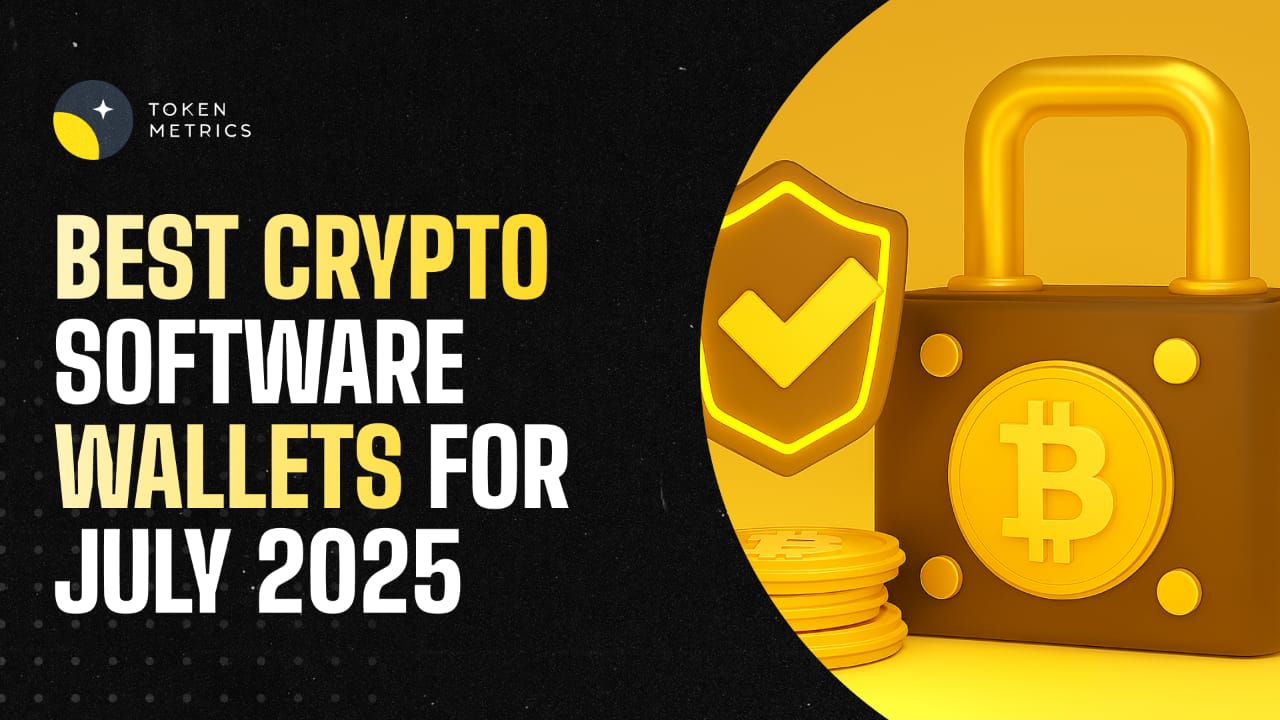







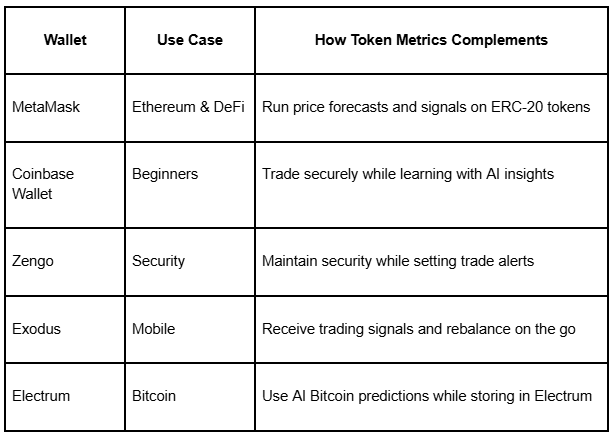

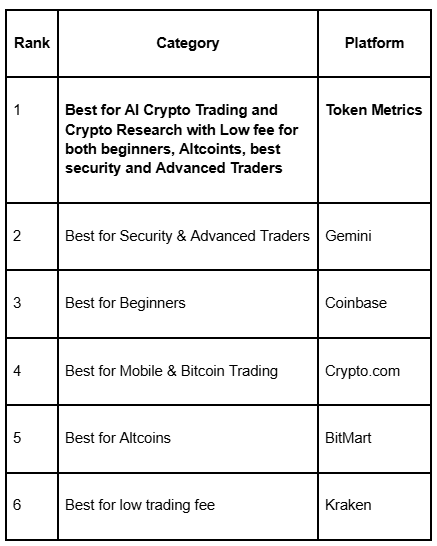









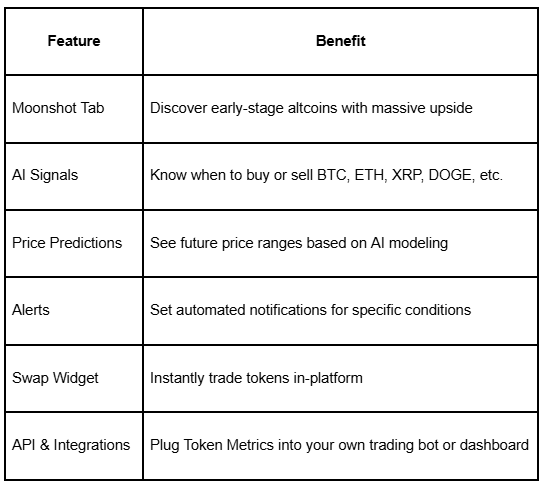


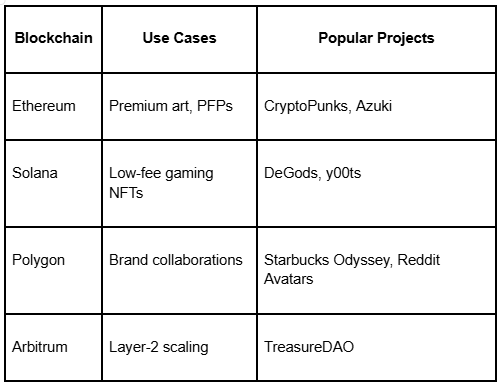



.svg)




.png)